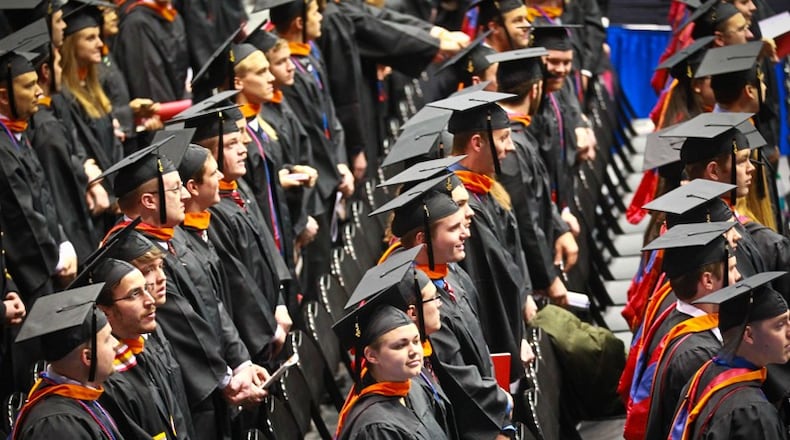Over that same period, student loan debt rose between 4-5%, outpacing the rise in tuition costs.
Currently, student load debt in the United States totals $1.68 trillion and is growing more than six times faster the nation’s economy, measured by GDP.
Moreover, 94.6% of this total, which is divided among 42.3 million Americans, is federally subsidized, with the average amount being $36,520.
As a result of this growing crisis, a growing number of individuals are encouraging the President Elect Joe Biden to use executive action to cancel $50,000 of student loan debt per person.
According to former Bernie Sanders presidential campaign advisor Stephanie Kelton from the Levy Economic Institute and others, cancelling debt would boost real gross domestic product by $86 billion to $108 billion per year.
Cancelling student debt also has the potential to close the racial wealth gap between Black and White Americans. According to research by Judy Scott-Clayton of Columbia University, Blacks default at five times the rate of white graduates (21% vs. 4%). In light of these drastic accomplishments, why would anyone argue against plans to cancel student debt?
Recent calls by politicians and public figures to cancel large swaths of student debt betray some of the most basic concepts of economics.
Economics, at its most basic level, deals with the study of how society manages scarce resources. Managing these scarce resources necessarily requires trade-offs.
Economists often use the phrase, “There is no such thing as a free lunch” to illustrate this principle. If decision makers decide to cancel $1 trillion of student debt, they necessarily cannot use those same funds for any other purpose.
Stated differently, there really is no such thing as debt cancellation when the public is involved; rather, there is only a debt transfer.
This trade-off, therefore, is not just between two different projects; it also represents a trade-off between recipients. Giving $50,000 to Joe and Sue Student who struggle to pay-off their student loans means that $50,000 is not going to Sandi and Robert Entrepreneur who are innovating and expanding the economy. This is the second major economic principle: economic decisions have secondary effects.
These secondary effects are not easy to see, but they are equally real.
Most of these student loans are funded by federal and state educational revenue bonds. Someone has to pay for these bonds. Not only would the government’s decision to cancel debt mean that it is investing Joe and Sue Student rather than Sandi and Robert Entrepreneur, it would also mean that Sandi and Robert Entrepreneur (and thousands of other tax payers) would have to pay the financial cost.
This cost would necessarily mean that Sandi and Robert could not invest in their own entrepreneurial activities, which would further limit the economy’s growth. Thus, the decision to forgive student loans may also mean that a new hospital is not built, a new auto dealership is not opened, and a new technology is not discovered.
Calls to forgive student loans also beckon us to consider basic economics: to consider the trade-offs and secondary effects of our economic decisions.
These calls summon us to consider what other activities would be worthy candidates for $1 trillion investment? Cancer research? Small business loans? Capital gains tax breaks? Indeed, the government should not cancel $1 trillion or more of student debt if that same amount of money could be used more efficiently and effectively to grow the economy because “There is no such thing as a free lunch.”
John Tarwater is an associate professor of finance with doctoral degrees in both finance and ethics. He is the author of various articles in professional journals and edited volumes in both fields. Guest columns are submitted or requested fact-based opinion pieces typically of 300 to 450 words
About the Author

